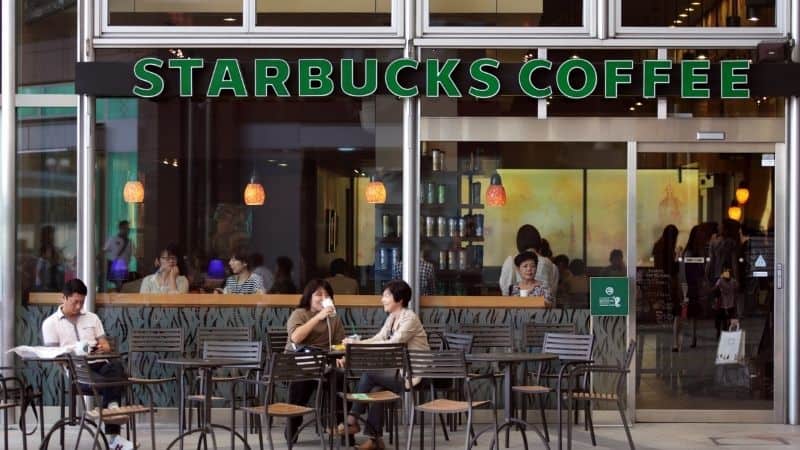Matcha powder provides a new way to drink tea and it’s become one of the most popular options at Starbucks. However, you might be wondering if Starbucks ’ matcha is sweetened or unsweetened.
If you’re interested in trying it out for yourself but you’re watching your sugar intake, read this article to find out whether it’s sweetened or unsweetened!
Is Starbucks Matcha Sweetened In 2024?
Starbucks matcha is sweetened as of 2024. This applies to every Starbucks matcha drink because the base powder they use is made from a combination of sugar and ground Japanese green tea, so they all come sweetened by default. When ordering a matcha drink from Starbucks you can add more sweeteners but you can never get one unsweetened.
Keep reading to learn all you need to know about the matcha drinks from Starbucks, including how much sugar they have, where the matcha powder they use comes from, and more!
Does Starbucks Matcha Latte Have Sugar?
A Starbucks matcha latte has sugar regardless of whether or not you order yours with additional sweeteners.
This is because the matcha powder that Starbucks uses is made from a combination of sugar and Japanese green tea.
However, how much sugar is in a Starbucks matcha latte differs depending on the size of the drink and whether it’s hot or cold.
A hot Starbucks matcha latte made from 2 scoops of powder has the following amounts of sugar:
- Tall – 24 grams
- Grande – 32 grams
- Venti – 43 grams
A Starbucks iced matcha latte made from 2 scoops of powder has the following amounts of sugar:
- Tall – 20 grams
- Grande – 28 grams
- Venti – 39 grams
According to this data, a Starbucks matcha latte tea has more sugar when it’s served hot than when it’s iced, usually 4 grams more.
You can also add more sugar to a Starbucks matcha latte by making your order with the following sweeteners:
- Sugar
- Sugar in the raw
- Honey
- Splenda
- Stevia in the raw
- Classic syrup
- Cane sugar
- Honey blend
Where Does Starbucks Get Its Matcha?
Starbucks gets its matcha powder from Japan and mixes it with sugar to create its own recipe.
They haven’t disclosed the exact brand that they use but experts have found that it tastes exactly like or very close to the matcha powder from a company called Aiya.
Research shows that the official Aiya Twitter account shared a recipe that explicitly says you can use their matcha to make a drink that’s exactly like Starbucks.
Is Starbucks Matcha Healthy?

Starbucks matcha is considered unhealthy by most experts because about half of it is added sugar.
Moreover, as we’ve established already, Starbucks uses sweetened matcha so you can’t get an option with no sugar.
Additionally, according to one barista’s report on Reddit, about half of the matcha used at Starbucks contains sugar that they add themselves.
Starbucks matcha powder also dissolves when liquid is added to it and this is something that regular unsweetened matcha powder doesn’t do.
Therefore, this leads many to label it less pure and thus unhealthy.
Can You Get Starbucks Matcha Unsweetened?
You can’t get Starbucks matcha unsweetened because the powder they use to create all the drinks is made from a combination of Japanese green tea and sugar.
With this blend, all of the matcha drinks available from Starbucks come sweetened by default so you’d have to buy yours elsewhere to get it unsweetened.
Your best bet would be to place an order for a matcha drink and ask them not to add any more sweeteners when preparing it.
This way, your drink would still have sugar in it but only the minimum amount and from the absolute basic ingredients.
Moreover, we’ve noticed that the hot matcha drinks from Starbucks have more sugar than the iced ones, so you could use this information to your advantage.
To know more, you can also read our posts on Starbucks yogurt, what matcha does Starbucks use, and how does Starbucks make cold foam.
Conclusion
Starbucks matcha is sweetened because sugar is added to the Japanese powder the company uses. For this reason, you can’t get unsweetened matcha drinks from Starbucks, however, to keep the sugar level low avoid getting extra added sweeteners.

